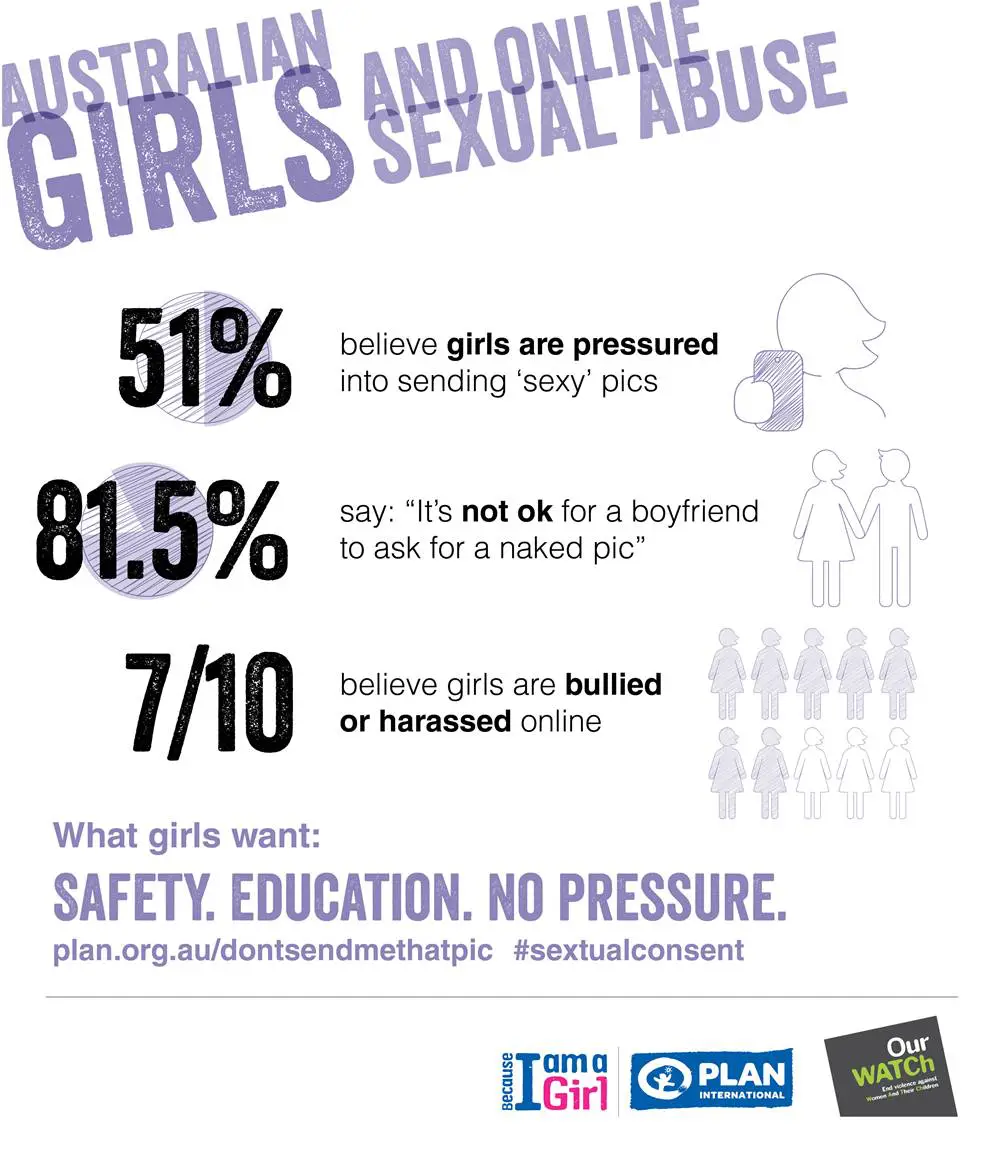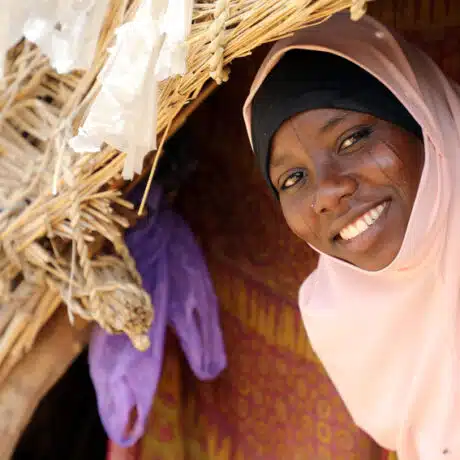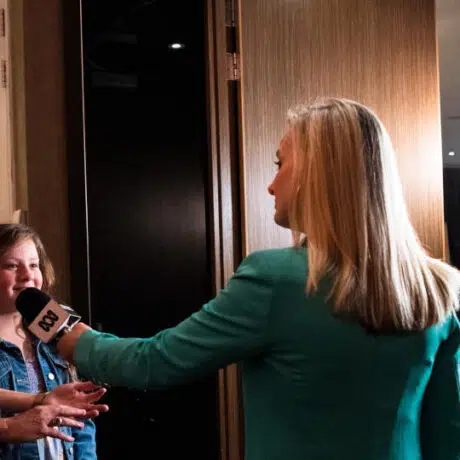News and Stories - Girls Rights - 2 March 2016
“Don’t send me that pic”

Australian girls aged 15-19 say online sexual harassment and cyberbullying are endemic.
New survey data published by Plan International Australia and Our Watch, in the report titled ‘Don’t send me that pic’, reveals Australian teenage girls’ perceptions about uninvited sexually explicit images, pressure to take and send sexy photographs and cyberbullying.
Alarmingly, 600 survey recipients from all states and territories report that online sexual harassment is commonplace.
Key findings include:
- seven out of ten Australian girls aged 15-19 believe online harassment and bullying is endemic
- Australian females aged 15-19 do not want to share sexual photos of themselves online
- 81% of girls believe it’s unacceptable for boyfriends to ask for explicit content although they believe pressure to do so is now commonplace
With Australian youth among the most digitally literate in the world, this survey shows the online world has also become a platform in which Australian young women and girls face abuse and harassment. Receiving unwanted and uninvited sexually explicit content online is now considered common behaviour.

What girls want
We asked recipients what they want done about online sexual harassment. The answer: safety, education, and zero pressure.
“[I want] Better education regarding sex for both boys and girls [and] information about pornography, and the way it influences harmful sexual practices.” – Lucy, aged 15 years.
“We need some sort of crack down on the violent pornography that is currently accessible to boys and men. This violent pornography should be illegal to make or view in Australia as we clearly have a problem with violence and boys are watching a lot of pornography which can be very violent … This is influencing men’s attitude towards women and what they think is acceptable. Violent pornography is infiltrating Australian relationships.” – Josie, aged 18 years.
“[I want] better understanding of girls today, better communication especially with online bullying and stuff, we need to be better taught too that if we are respectful and have better attitudes we can feel safer and have better relationships, and less pressure about us growing up.” – Mia, aged 16 years.
Names have been changed to protect girls’ identities
How to make sure they get it
For girls, change starts in schools.
Plan International’s Deputy CEO Susanne Legena says: “Despite being unwanted, almost 60% of recipients believe girls receive unwanted sexual photos, messages and videos, this form of abuse is reaching girls inside their homes and bedrooms.”
For Our Watch’s CEO Mary Barry, “Schools play an important role in the safety and wellbeing of their students.”
“Evidence suggests the best way for schools to address and prevent all forms of bullying – including cyber-bullying and harassment – is through a systematic whole school approach which not only provides in-class education, but addresses the school culture, policies and procedures, and promotes gender equity within the staffing body.
“Schools play an important role in the safety and wellbeing of their students,” she said.
The survey, conducted by Ipsos, interviewed 600 Australians girls and women aged 15-19 from all states and territories. Results are published today in the report “Don’t send me that pic” Australian young women and girls report online abuse and harassment are endemic which can be downloaded from Plan. View the report.





